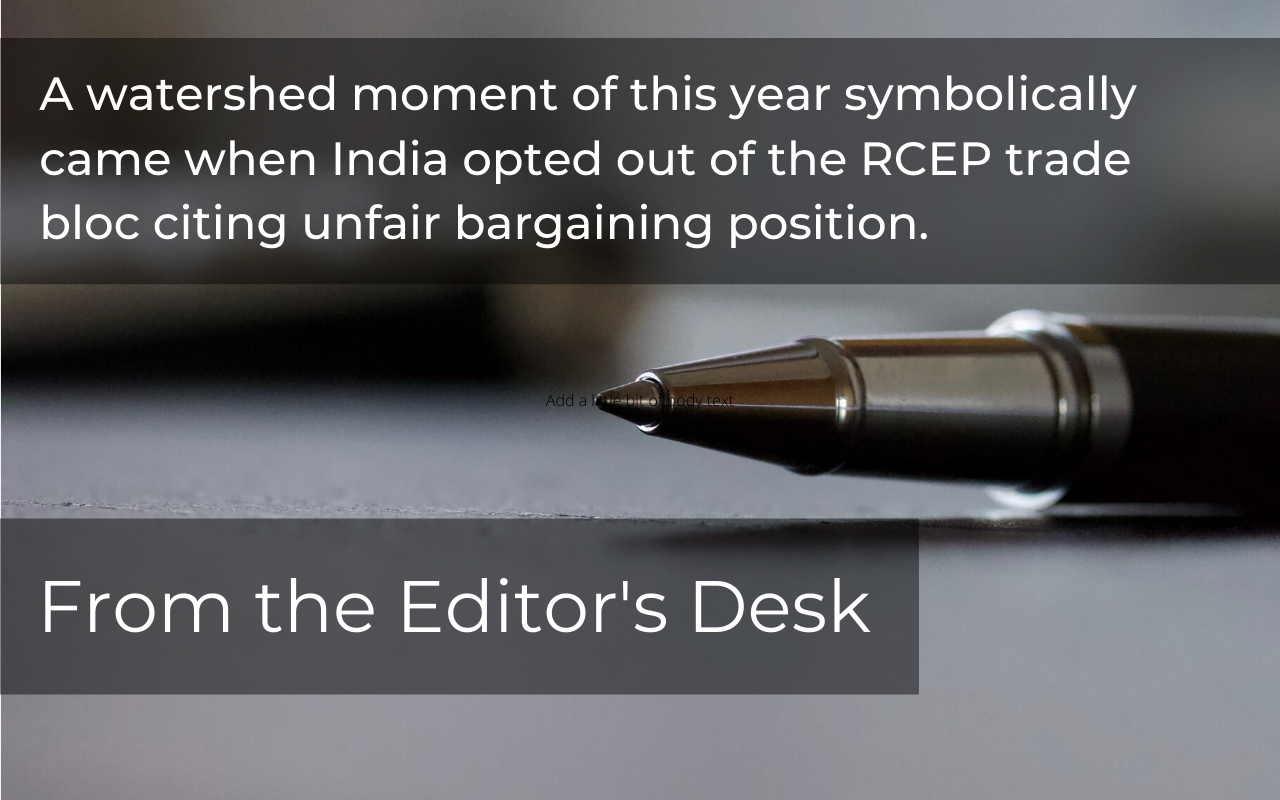2019 has been the most tumultuous year in the recent past. Economy has been constantly bearing the brunt of slowdown. Signs of recovery have been elusive. At the beginning of the year, GDP was pegged at 6.6 per cent and it slid down to 4.5 per cent this month, lowest in the last six years. Unemployment rate which was 6.9 per cent in January 2019 moved up to 8.5 per cent in December 2019.
The year began with Modi 2.0. The nation hoped for a sustained slew of structural reforms. Annual budget with its focus on helping us move to a $5 trillion economy strengthened that hope. It focussed on broadening the canvas of skill development. New skills – AI, Robotics, VR, Big data, IoT, 3D printing were added to the ambit of skill building. MSME and Start-ups were the beneficiaries of the largesse in the budget. Annual turnover limit was raised from Rs 250 crore to 400 crores for levying corporate tax. FDI was eased in aviation, media and insurance sectors. A stretch goal of 1,05,000 crore was fixed for disinvestment. Air India has been put on the bloc. Nine months down the line, slowdown seems to have put all efforts to disinvest to a grinding halt.
Steps taken towards consolidating labor laws and helping strengthen the ease of doing business gained momentum with the government introducing the labor codes on ‘wages’ and on ‘occupational safety, health and working conditions’ in the Lok Sabha. The code on wages bill was passed by both houses of Parliament. There are two more proposed labor codes. In a positive development, the Parliament passed a bill named The Repealing and Amending Bill, 2019, repealing 58 archaic laws. Talking of ease of doing business, in a report released by World Bank, India’s ranking has moved up 14 places to Rank 63 from last year, which manifests a remarkable improvement although much more needs to be done at the lower bureaucracy level to build confidence among FIIs, domestic entrepreneurs and job creators.
While the government was busy bringing about the right set of interventions, the threat of economic slowdown began manifesting its fangs. The government taking note of the crisis, introduced the first set of economic stimuli in August 2019, to set the multiplier effect in motion. Auto, construction and manufacturing sectors, which have been most impacted, received impetus to help revive them. Two weeks later, the government announced the merger of ten public sector banks into four. Post mergers, the number of Indian public sector banks would reduce from the existing 27 to 12. The government with the aim of creating fewer but stronger large banks who could eventually become large-scale lenders with the capability to back globally competitive projects. The government also eased FDI norms in coal mining, contract manufacturing, digital media and single-brand retail.
A watershed moment of this year symbolically came when India opted out of the RCEP trade bloc citing unfair bargaining position (though unsaid but referring to – vis a vis China) as the reason. If India would have signed the RCEP in line with the other 15 signatory nations, there was an imminent danger of over a million jobs withering away. This populist step showing our protectionist mindset further took us away from globalization.
You might also be interested to read: Saying No To RCEP Saves Jobs
Come November and the government announced Rs 42,000 crore sops to the ailing telecom players with a two-year moratorium on payment of spectrum dues. Taking the agenda of labor reforms, the union cabinet approved the Code on Industrial Relations 2019 and sent it to Lok Sabha.
One earnestly hopes the multiple doses of economic stimulus start showing positive results in 2020. The annual budget must be built around ‘imperatives of economics’ and not ‘compulsions of politics’.
For us at India Employer Forum (IEF), 2019 saw the website going live on June 1, 2019. It has been going from strength to strength with patronage from industry and corporate leaders who have been contributing articles, interviews and ideas to keep afloat our objective of taking ahead the mandate of employment and ease of doing business. The first IEF conclave on Reimagining Human Capital in Bangalore and Mumbai on August 21 and October 16 respectively was attended by senior HR professionals in large numbers. Our endeavour would be to continue to build the momentum in 2020!





